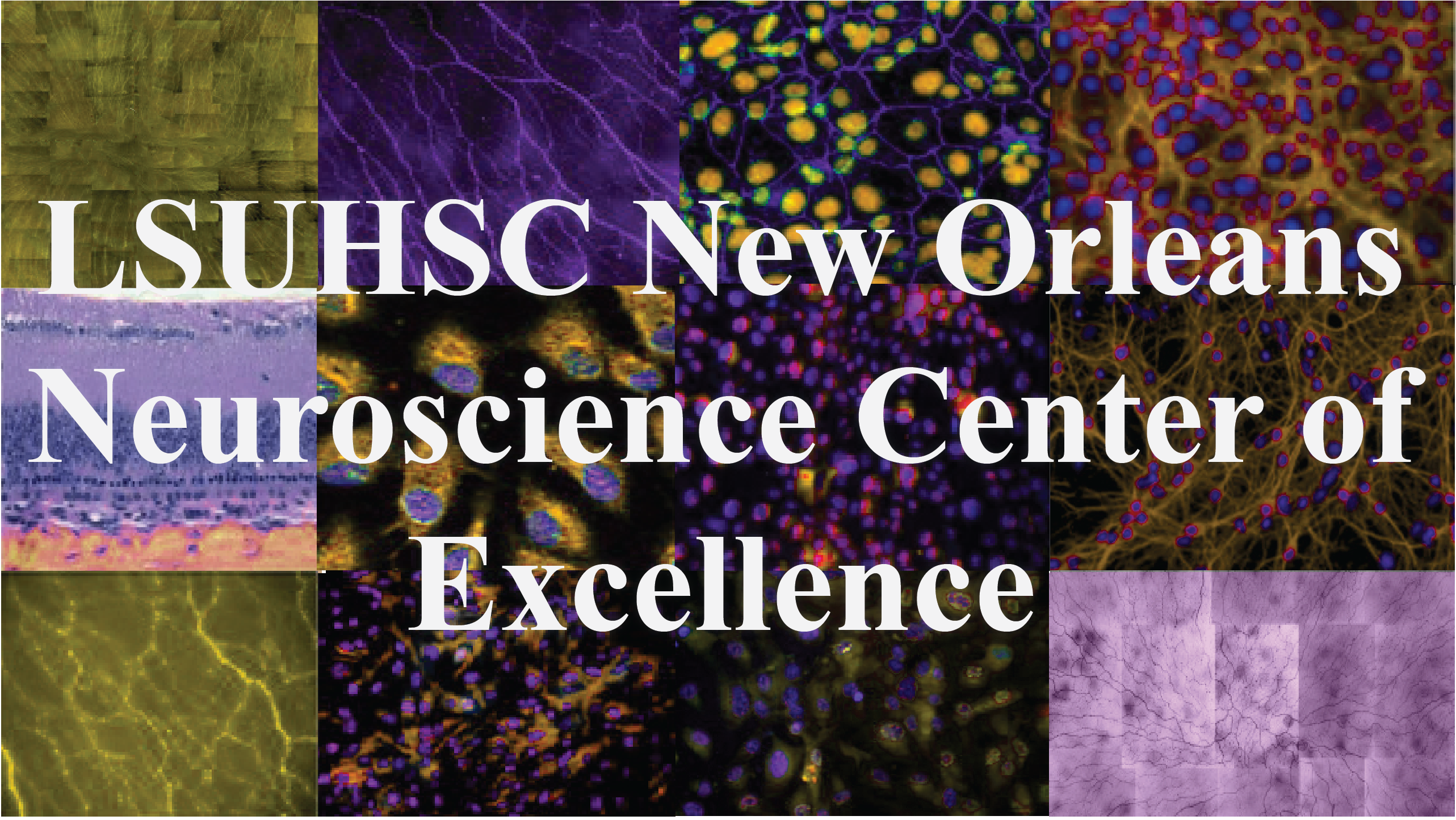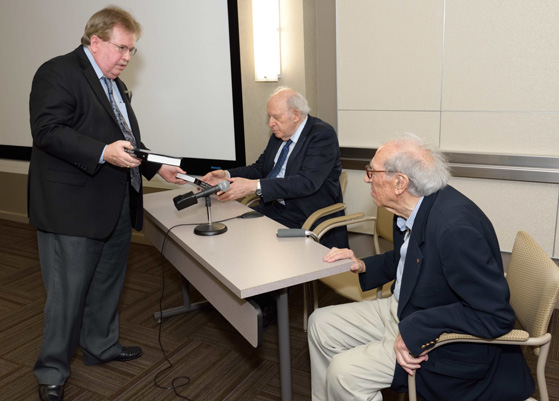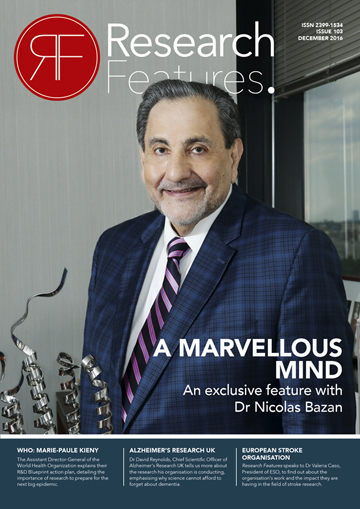Welcome!

The Neuroscience Center pursues a multidisciplinary approach to neuroscience education and research. The primary mission of the Center is to foster and conduct science of the highest caliber that advances the understanding of brain function and diseases that affect the nervous system. A major role of the Center is to mentor the development of neuroscientists and clinician-neuroscientists through fundamental and translational research. The Neuroscience Center has established, through the faculty associated with the Center, research and clinical programs directed toward Alzheimer's disease, pain, Parkinson's disease, stroke, brain, and spinal cord injury, epilepsy, depression, blinding eye diseases, schizophrenia, and developmental and hearing disorders. Cutting-edge research programs on the molecular and cellular bases of neural diseases are the heart of the Center's innovative educational programs: the Interdisciplinary Neuroscience Graduate Program (Ph.D. or M.D./Ph.D. in Neuroscience) attracts outstanding students from around the world; the Summer Undergraduate Neuroscience (SUN) Program mentors top Louisiana undergraduate students through lectures and hands-on research; and postdoctoral fellowships train the next generation of investigators. Several seminar programs and lectureships host renowned scientists who present their work to the LSUHSC community. The lecture series “Health Through Discovery” promotes the exchange of knowledge at the interface of clinical and research science. The annual statewide Neuroscience Retreat (in its 22nd year in 2010) is a forum for the showcasing of neuroscience investigation and discovery and has been the birthplace of countless research collaborations. The Center has had an economic impact in Louisiana through significant federal and private research funding. Innovations from the Center's drug-discovery program have resulted in 19 patents or patent applications; some of these innovations formed the base of a start-up pharmaceutical/biotechnology company in Louisiana. In addition, the expertise of the Center's investigators has drawn the interest of the biotechnology and pharmaceutical industries and has taken the lead in the establishment of the Neurobiotechnology Program of Louisiana, which brings together Tulane University, LSUHSC-Shreveport, and LSUHSC-NO to promote the application of knowledge gained through research. The Center is very active in technology transfer and is dedicated to the retention within the state of Louisiana of technologic expertise, patents, and the income generated through discovery. In 1997 the Center began its initial phase of consolidation of resources and recruitment of investigators. At present, the Neuroscience Center is undertaking its second major expansion. In bringing together academic and governmental agencies and private/public partnerships, the Neuroscience Center has had a pivotal role in innovative approaches to the treatment of disorders of the nervous system and the advancement of understanding of the mechanisms of disease.
I appreciate your visit to the Neuroscience Center of Excellence website and thanks to Dr. Rigby for his perspective on the Center's organization and activities (see below).
Sincerely,
Nicolas G. Bazan, M.D., Ph.D.
Director, LSUHSC Neuroscience Center of Excellence
THE LSU NEUROSCIENCE CENTER OF EXCELLENCE: A PERSPECTIVE
By Perry G. Rigby, M.D., Professor of Medicine, Chancellor, LSUHSC (1985-1994)
Overview
The Neuroscience Center of Excellence was proposed by Dr. Nicolas Bazan and authorized by the LSU Board of Supervisors and the Board of Regents in 1989. This recognition was supported a few years later by funds from the Louisiana Legislature to begin a comprehensive biomedical scientific center at the LSU Medical Center aligned with the mission components of Education, Research, Patient Care, and Community Service.
This Neuroscience Center, and the Cancer Center, were in subsequent years followed by other LSUHSC centers of excellence. They in turn recruited faculty participants in many related disciplines and across departmental lines, basic and clinical hierarchical relationships that joined together in common purpose and active work.
Dr. Bazan not only founded this new entity in interdisciplinary and interdepartmental endeavor, but effectively managed, grew and expanded the enterprise to include other academic institutions and organizations across the state and around the nation.
The core emphasis and focus of these teams of scientists is research; the ideas, experiments, and results that unite and encourage exploration and progress. There are also numerous areas of education by many of the related neuroscience faculty and others, and teams of clinicians, focused in practice settings, arranged, and available to deliver medical and surgical care in neuroscience.
The initial relationship with the community in which we live, broad in scope and diverse in people and talent, has also been nurtured and encouraged by Dr. Bazan. Now the Neuroscience Center is recognized as a concentration of excellence within LSU and its community environment.
The magnitude of growth and accomplishment of the LSUHSC Neuroscience Center has fulfilled the potential of possibilities, envisioned years ago and filled by real work, and continues to escalate, as anticipated by Dr. Bazan and others.
Mission and Scope
The Neuroscience Center pursues multidisciplinary neuroscience research and education. The primary mission of the Center is to foster and conduct science of the highest caliber that advances the understanding of brain function and diseases that affect the nervous system. The Neuroscience Center has research programs relevant to the understanding of Alzheimer's disease, pain, Parkinson's disease, stroke, brain, and spinal cord injury, epilepsy, post-traumatic stress disorder, blinding eye diseases, schizophrenia, and developmental and hearing disorders. These diseases have no cure at the present time; thus, new knowledge about their molecular and cellular bases contributes to the understanding of their pathophysiology and to the development of therapeutic approaches that include prevention and slowing down their initiation, progression, and/or halting their consequences.
Lectureships
In the 80s, several years before the school funding of the Center began, Dr. Bazan attracted outside funding to develop the Distinguished Lectureship in Neurosciences, Seminars and LSU Neuroscience Center Retreat. These retreats began in 1989, bringing the Neuroscience community together around a major neuroscience leader and of posters highlighting current research. In 2006, the 18th Annual Retreat was held. Several Nobel Laureates participated as guest speakers of these series.
Incentive Grants
Initially, the efforts to develop the LSU Neuroscience Center of Excellence focused on stimulating research activities among neuroscientists of various departments of the School of Medicine. Toward this end, Dr. Bazan developed an innovative Medical School-wide two-year (1991-1993) competitive incentive grants award program utilizing the initial Center budget. This program was very successful; through the gathering of preliminary data, new NIH grants were obtained. Also, this initiative fostered interactions among neuroscientists of different departments.
Major Out-of-State Grant Used to Build the 8th and 9th Floors of the Lions Building
Dr. Bazan organized and led a major interdisciplinary research program on Neural Response to Injury: Prevention, Protection, and Repair that attracted 13.8 million dollars from a federal agency. In the mid-'90s, the construction of the 8th and 9th floors of the Lions Building, with 65% of the cost funded by this grant, was made possible. Also, major equipment for the two new floors was made available by this grant. In addition, this grant funded $4 million in equipment and partial research expenses for neuroscientists in the Departments of Anatomy and Cell Biology, Neurosurgery, Neurology, Pharmacology, and Ophthalmology.
Environment
In 1996, the opening of the 8th and 9th floors of the Lions Building allowed the recruitment of promising junior investigators. Overall, an environment of research excellence was increasingly established. High-quality students and postdoctoral fellows were attracted by the newly-formed research groups. Dr. Bazan promoted a growing consolidation of a culture of research excellence. Individually, the new investigators became exceptionally productive and obtained competitive federal funding. Several discoveries were made that appeared in major journals. Among them is the recent discovery of neuroprotectin D1 (NPD1), a mediator of neuroprotection relevant to stroke, retinal degenerations, and Alzheimer's disease.
Center of Biomedical Research Excellence: Fundamental and Translational Research
The quality of the research groups and the easiness of collaborations and interactions allowed the Center to attract a major program-project type federal grant on sleep deprivation (2000 - 2002) conceived by Dr. Bazan. The Center also attracted a major EPSCoR/NSF grant on Micronanotechnologies in neural signaling (2002 - 2004), that brought together three other academic institutions from Louisiana along with the Neuroscience Center. Another outcome of the collective force is mentoring at various levels: graduate students, postdoctoral fellows, and junior faculty. The Center mentors the development of neuroscientists and clinician-neuroscientists through fundamental and translational research. Four years ago, Dr. Bazan conceived, wrote and received the first COBRE (Centers of Biomedical Research Excellence) award from NIH in the State of Louisiana. This competitive grant has elicited a substantial impact on neuroscience research in this state, and more specifically LSU Health Sciences Center, the University of New Orleans, Xavier University, Nicholls State University, and Tulane University. This grant fostered the development of a culture of mentoring and further brought together investigators from different disciplines. The Neuroscience Center's initiatives have contributed to the development of other COBRE grants in the state. In the months and ensuing chaos following the landfall of Hurricane Katrina, the investigators of the Center have maintained their interactions and have continued to be scientifically productive. In a way, the crisis created by Hurricane Katrina, and the many resulting uncertainties, were a test of the strength of the intellectual bonds and the commitment of the neuroscience investigators and other personnel of the Center.
Interdisciplinary Education
The Center has organized several additional innovative educational programs, such as: the Interdisciplinary Neuroscience Graduate Program (Ph.D. or M.D./Ph.D. in Neuroscience), which attracts outstanding students from around the world; the Summer Undergraduate Neuroscience (SUN) Program, which mentors top Louisiana undergraduate students through lectures and hands-on research; and the postdoctoral fellowships, which train the next generation of investigators.
MOON Program
The latest addition to these programs, the nascent Medical students' Outstanding Opportunities in Neuroscience (MOON) Program, is mainly focused on LSU medical students and aims to initiate the nurturing of future medical scientists. The program began in 2006 with a small group of students as a pilot program. The positive lessons learned have made the Center decide to continue with the program in subsequent years. The activities immerse the medical students in an intensive hands-on research project during the summer. Students are required to participate in workshops (3-4 during the summer) where they share with the faculty a progress report on their specific projects. The endpoint of this short, although intensive research experience is to encourage the development of the medical students' honors thesis (during their next 3 years of medical school) and of M.D./Ph.D. candidates. These candidates, upon completion of their second year in medical school, will return to work on a specific research project in fulfillment of the Ph.D. requirements. Then they go back to complete their third and fourth years of medical school. Overall, this program, along with the Center's other educational activities, contributes to research experience that motivates young persons to choose an active biomedical research career.
Impact
Seminar programs and lectureships host renowned scientists who present their work to the LSUHSC community. The lecture series “Health Through Discovery” promotes the exchange of knowledge at the interface of clinical and research science. Also, the annual statewide Neuroscience Retreat (in its 18th year in 2006) is a forum for the showcasing of neuroscience investigation and discovery and has been the birthplace of many research collaborations. The Center has an economic impact in Louisiana through the federal and private research funding being attracted from outside the state. Innovations from the Center's drug-discovery program have resulted in 18 patents or patent applications; some of these innovations formed the base of a start-up pharmaceutical/biotechnology company in Louisiana. In addition, the expertise of the Center's investigators took the lead in the establishment of the Neurobiotechnology Program of Louisiana to promote the application of knowledge gained through research. The Center is active in technology transfer aimed at retaining within the state of Louisiana the knowledge, technologic expertise, patents, and income generated through discovery.
Dr. Nelson presenting the awards to Nobel Laureates Dr.Jerome Friedman and to Dr. Edmond Fisher
Research Features Magazine; December 13, 2016


